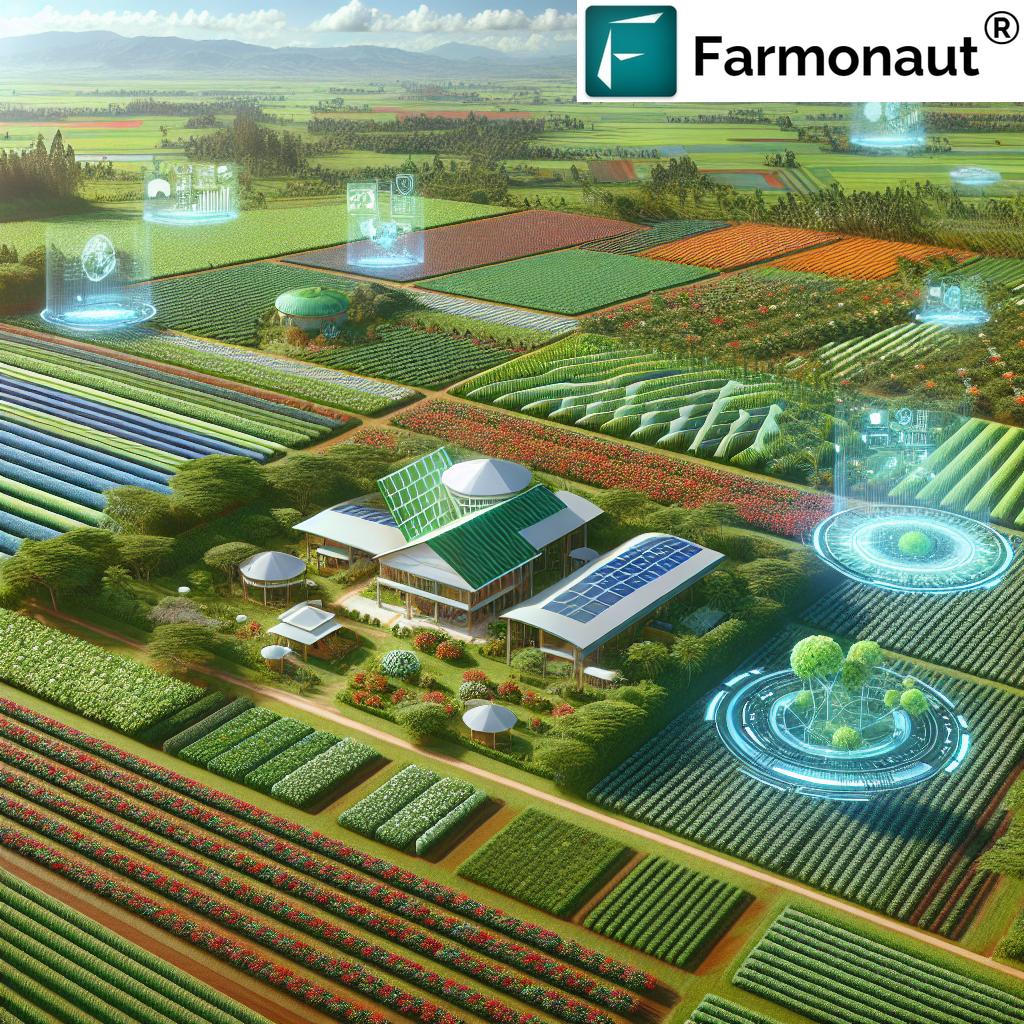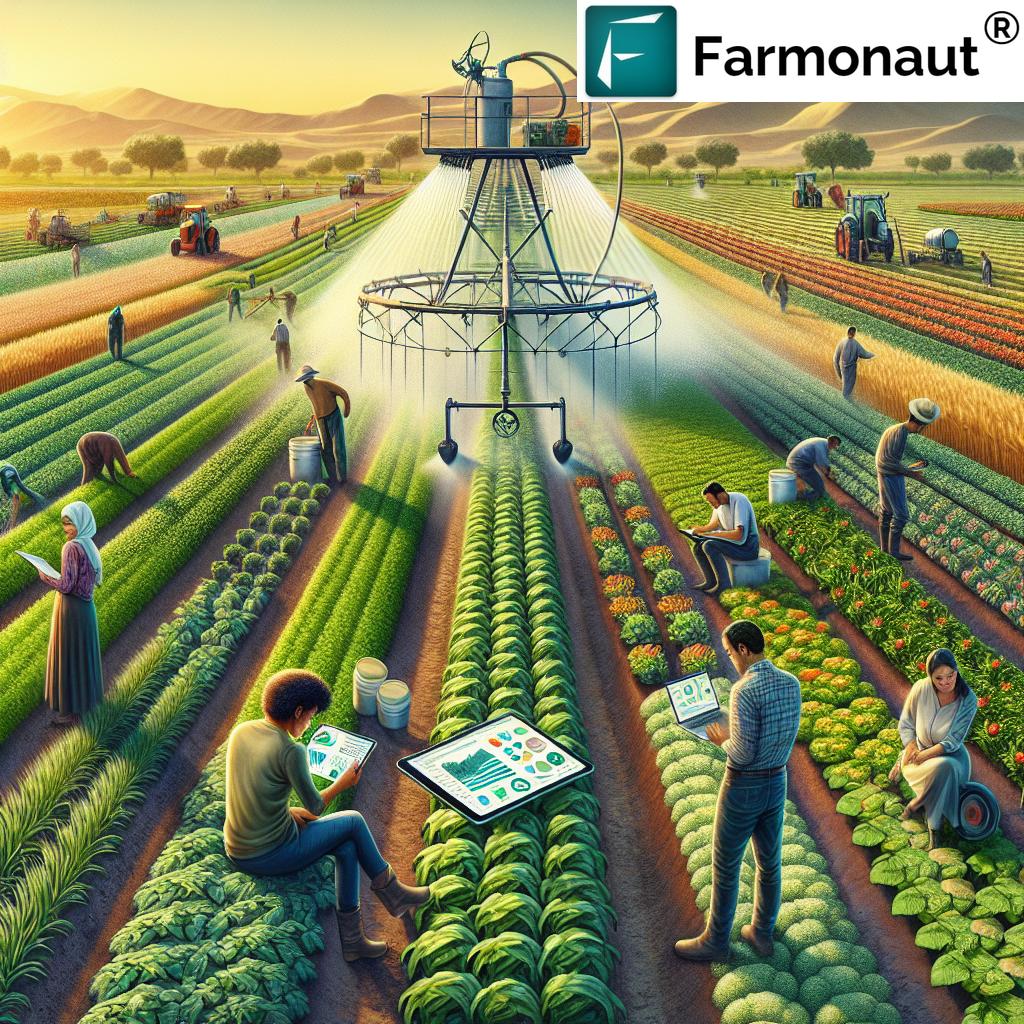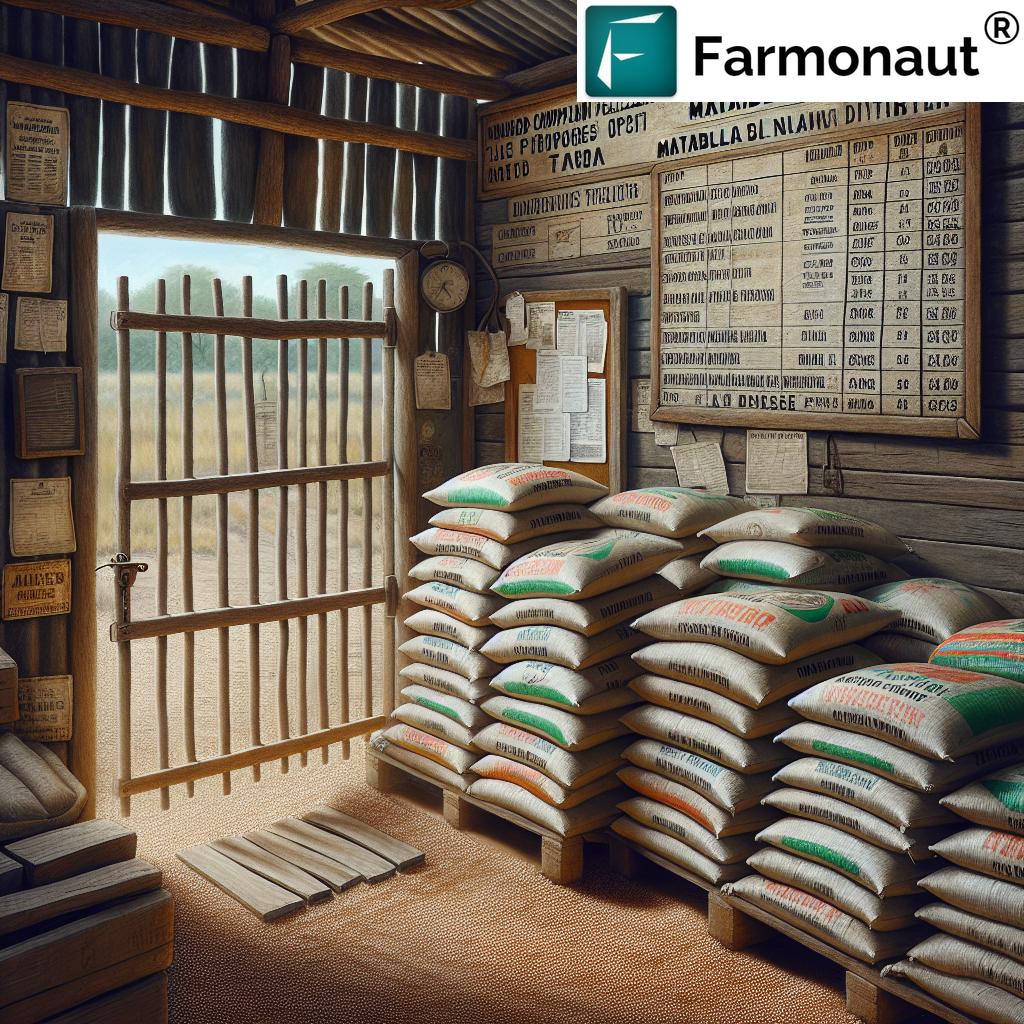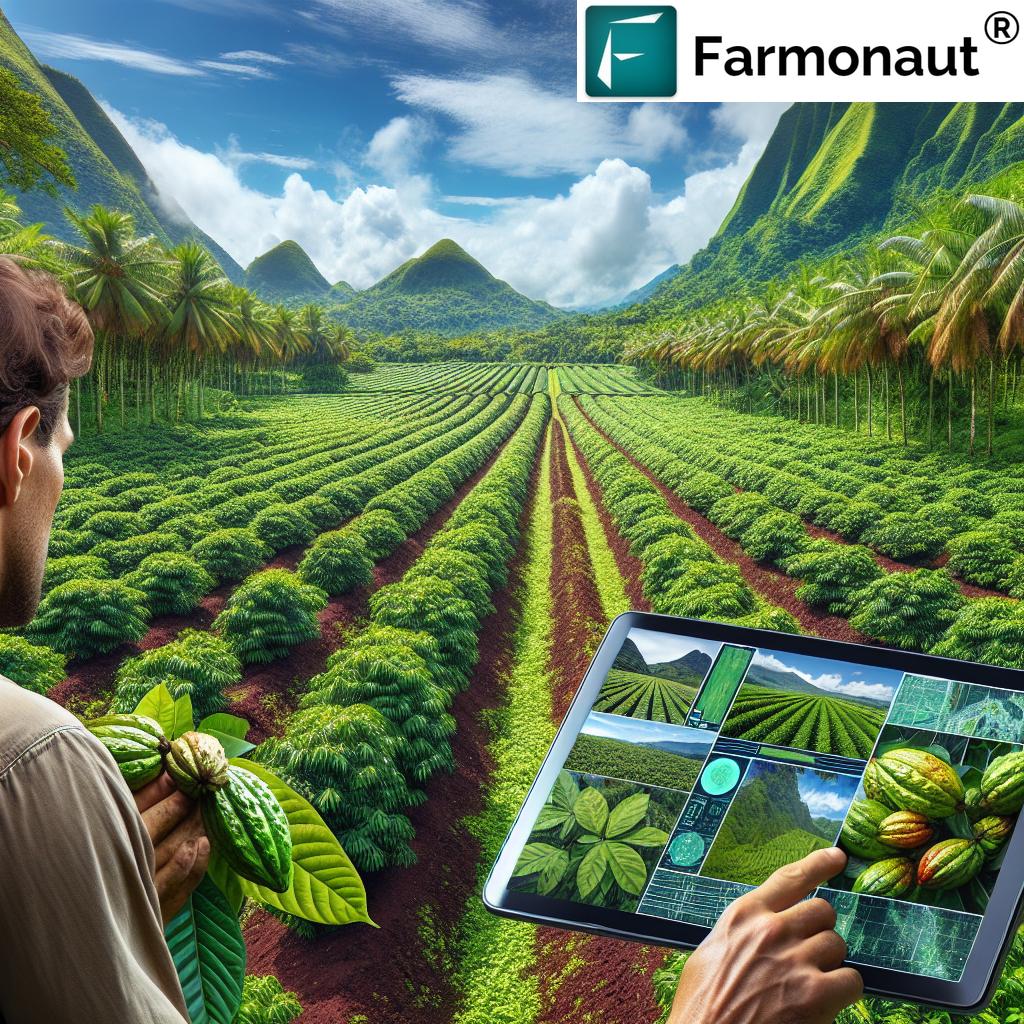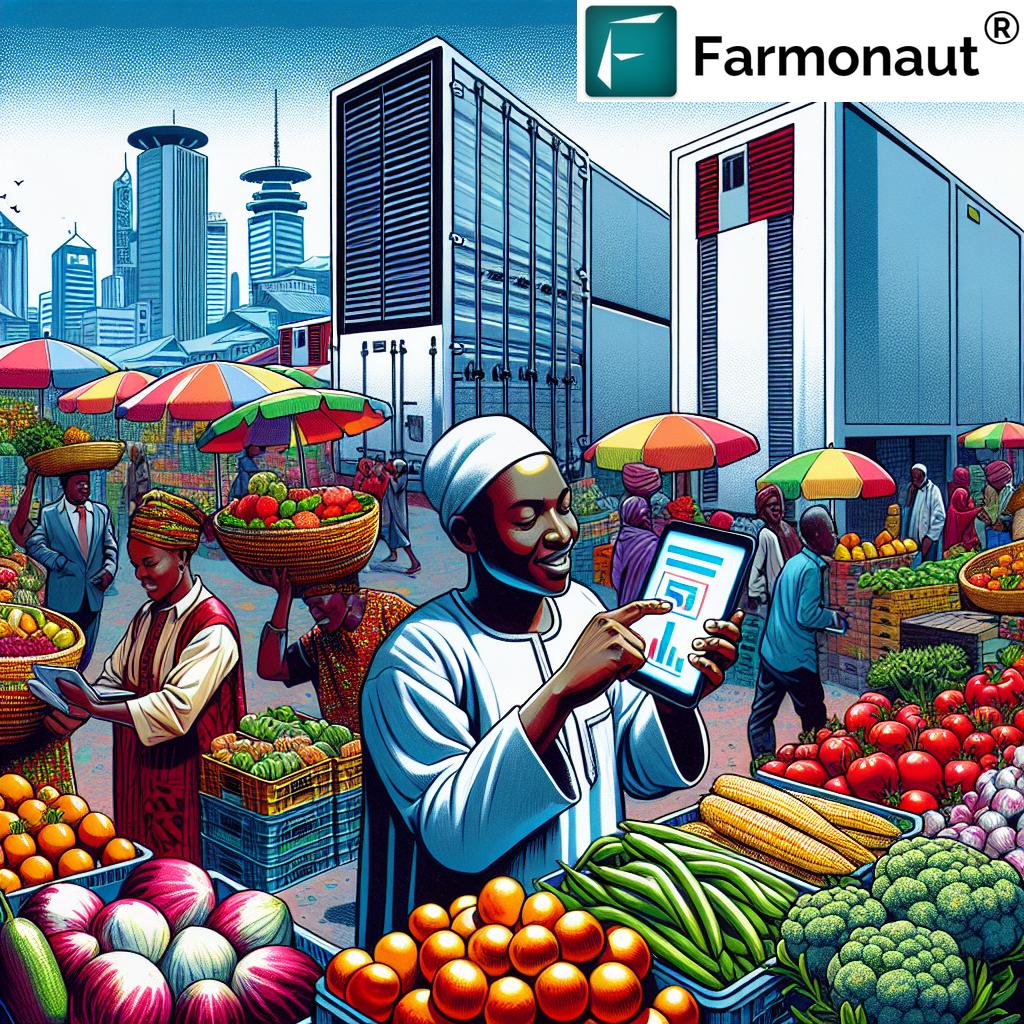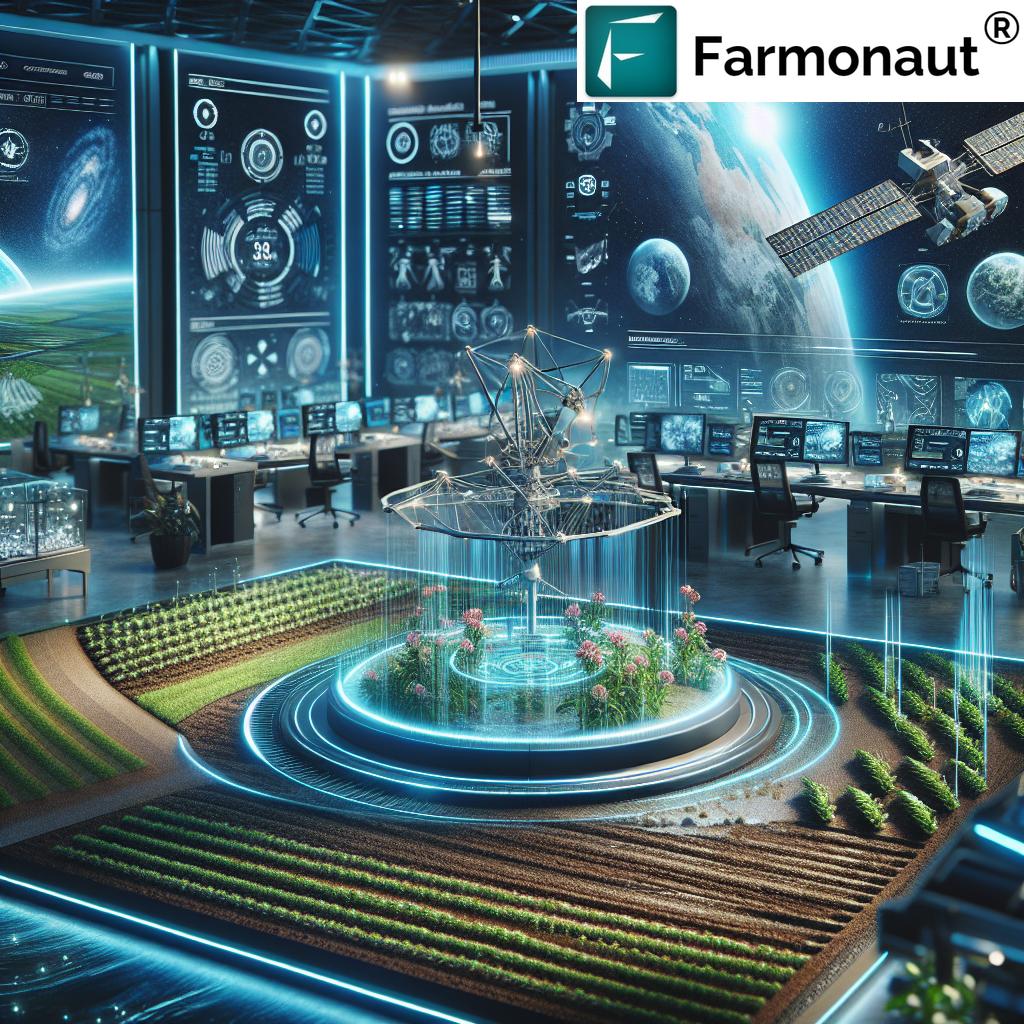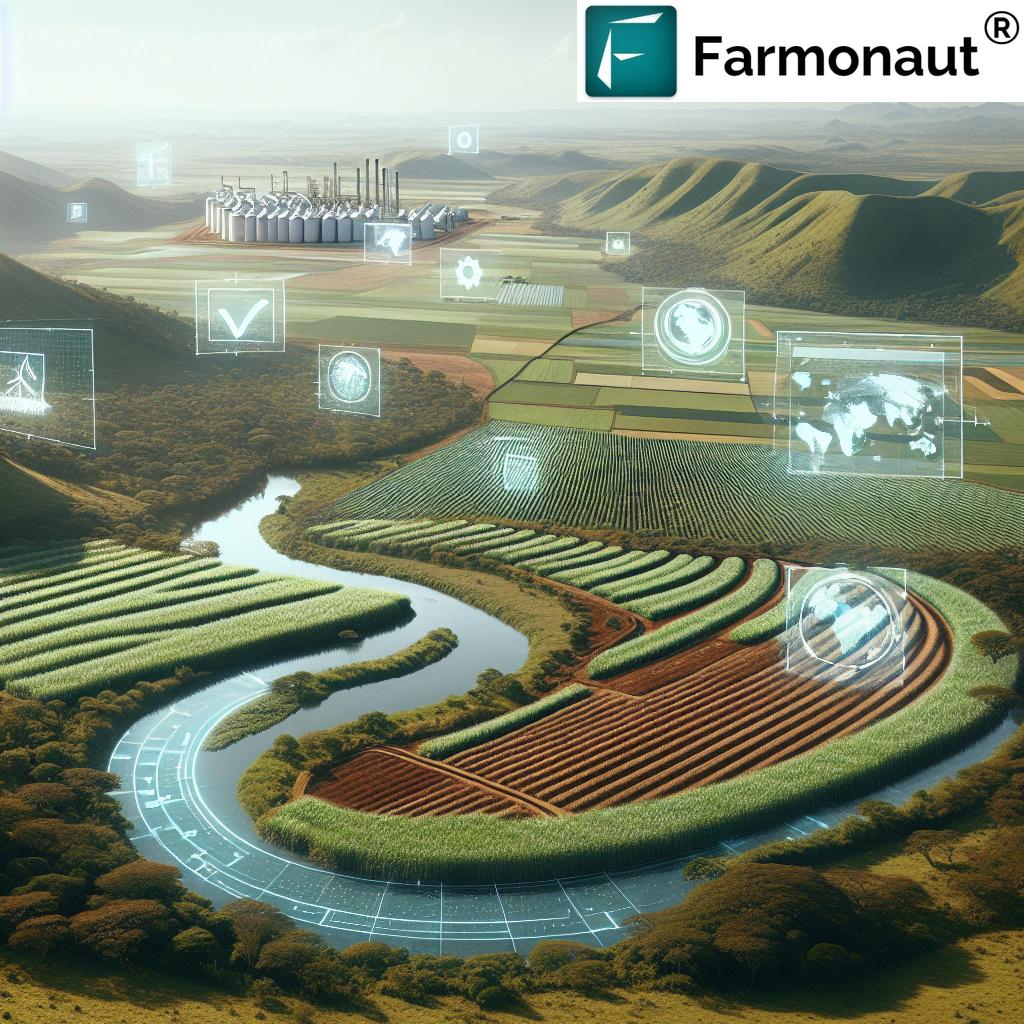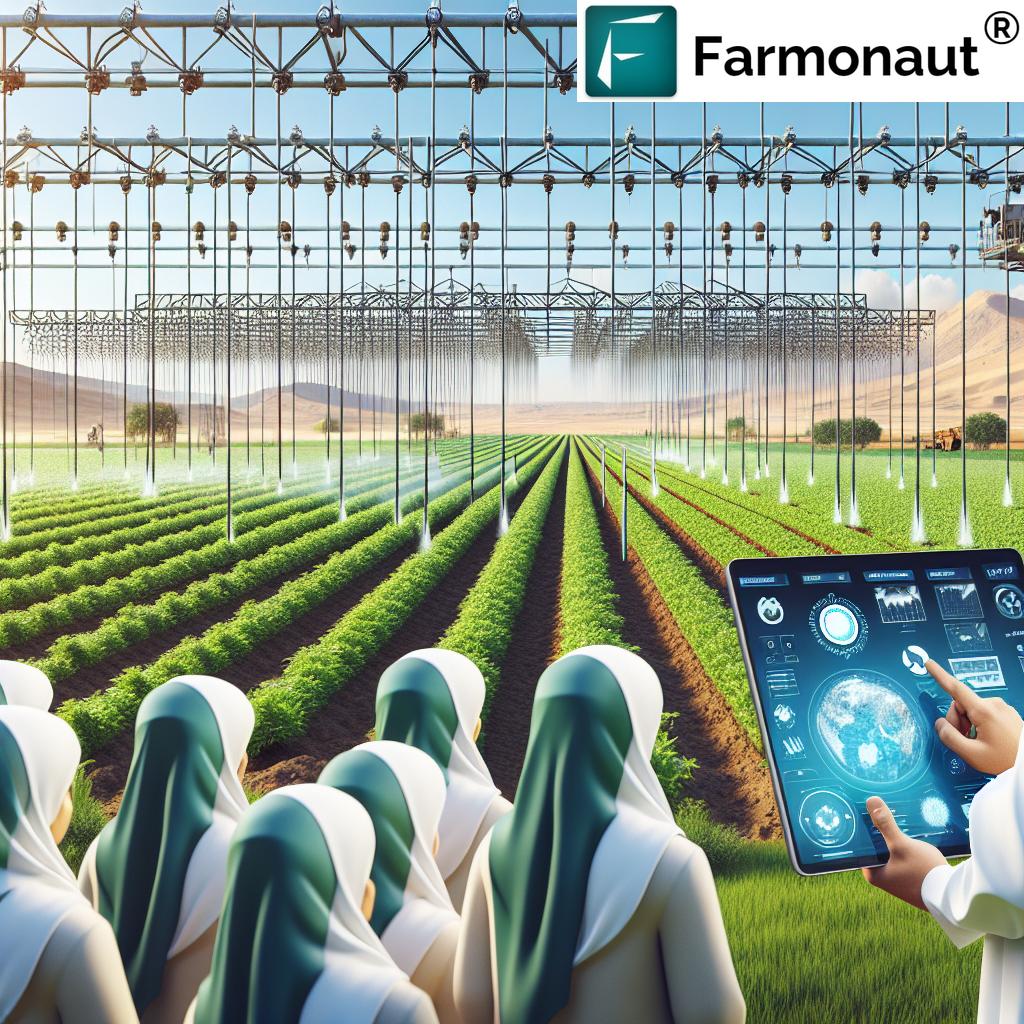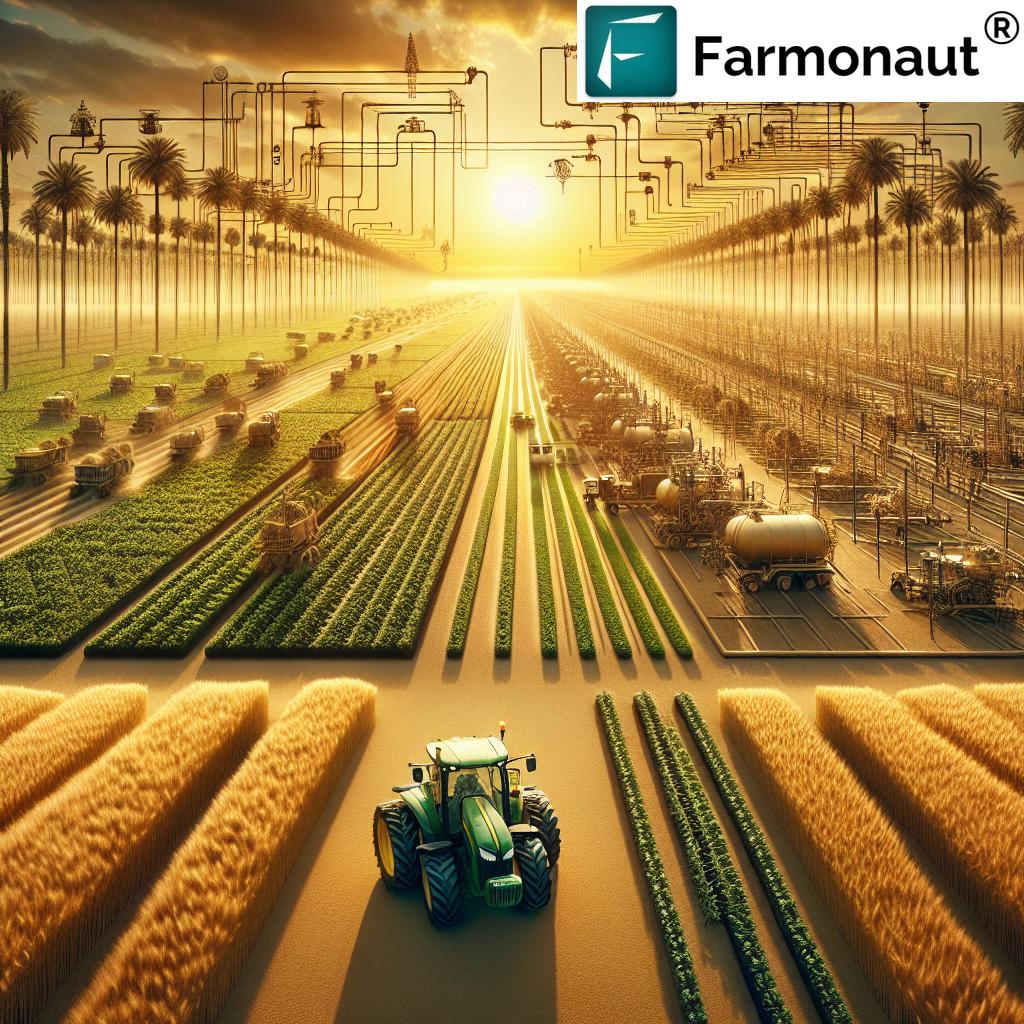Revolutionizing Food Security in Egypt: Blockchain-Powered Traceability Platform Enhances Supply Chain Transparency
“Farmonaut’s blockchain-powered platform utilizes QR code food tracking to provide 100% product visibility from farm to table.”
In the heart of Cairo, a groundbreaking transformation is taking place in the realm of food security and supply chain management. We are witnessing the dawn of a new era in agricultural technology innovation, where blockchain technology and digital solutions are reshaping the landscape of food traceability and distribution. At the forefront of this revolution is a pioneering food traceability platform that is set to redefine how we approach food security in Egypt and beyond.
The Digital Revolution in Egypt’s Food Supply Chain
As we delve into this transformative journey, it’s crucial to understand the significance of this development in the context of Egypt’s agricultural sector. The implementation of a blockchain-powered traceability platform marks a pivotal moment in the country’s efforts to enhance food security and supply chain transparency.
- Enhanced visibility from farm to table
- Real-time tracking of food products
- Improved quality control measures
- Increased efficiency in distribution
This innovative system leverages cutting-edge technologies to create a seamless, transparent, and secure food supply chain. By harnessing the power of blockchain, QR codes, and smart agriculture systems, stakeholders at every level of the supply chain can now access critical information with unprecedented ease and reliability.

Blockchain: The Backbone of Transparent Food Systems
At the core of this revolutionary platform lies blockchain technology, a decentralized and immutable digital ledger that ensures the integrity and traceability of every transaction within the food supply chain. This technology provides a secure, transparent, and tamper-proof record of each product’s journey from its source to the end consumer.
Key benefits of blockchain in agriculture include:
- Immutable record-keeping
- Enhanced trust among stakeholders
- Reduced fraud and errors
- Improved food safety and quality assurance
By implementing blockchain technology, we’re not just digitizing the supply chain; we’re revolutionizing it. This secure and transparent system allows for real-time tracking and verification of food products, ensuring that every stakeholder, from farmers to consumers, has access to accurate and up-to-date information.
QR Codes: The Gateway to Transparency
A crucial component of this food traceability platform is the integration of QR code food tracking. Each food carton distributed through the system is equipped with a unique QR code, serving as a digital fingerprint for the product. This simple yet powerful tool allows for:
- Instant access to product information
- Verification of product authenticity
- Tracking of the product’s journey through the supply chain
- Enhanced consumer engagement and trust
By simply scanning the QR code with a smartphone, stakeholders can access a wealth of information about the product, including its origin, production date, and distribution path. This level of transparency not only builds trust but also empowers consumers to make informed decisions about the food they purchase and consume.
Explore our innovative solutions:
Smart Agriculture Systems: Optimizing Production and Distribution
The integration of smart agriculture systems within this traceability platform marks a significant leap forward in agricultural technology innovation. These systems leverage advanced sensors, IoT devices, and data analytics to optimize various aspects of food production and distribution.
Key features of smart agriculture systems include:
- Precision farming techniques
- Automated irrigation and fertilization
- Real-time crop monitoring
- Predictive analytics for yield optimization
By harnessing these technologies, we’re not only enhancing productivity but also promoting sustainable food distribution practices. Smart agriculture systems enable farmers and distributors to make data-driven decisions, reducing waste and improving resource allocation throughout the supply chain.

Agricultural Data Management: Empowering Informed Decisions
At the heart of this revolutionary platform lies a robust agricultural data management system. This system collects, processes, and analyzes vast amounts of data from various sources throughout the supply chain, providing valuable insights to stakeholders.
Benefits of effective agricultural data management:
- Improved forecasting and planning
- Enhanced quality control measures
- Optimized resource allocation
- Facilitated compliance with regulations
By leveraging big data analytics and machine learning algorithms, this platform transforms raw data into actionable intelligence. This empowers stakeholders to make informed decisions based on real-time information, ultimately leading to a more efficient and responsive food supply chain.
“The digital traceability system creates an immutable record of every transaction, ensuring 24/7 accountability in the food supply chain.”
Enhancing Food Security Through Digital Innovation
The implementation of this blockchain-powered traceability platform represents a significant step forward in addressing food security challenges in Egypt. By providing end-to-end visibility and accountability throughout the supply chain, we’re able to:
- Reduce food waste through better inventory management
- Improve food safety by quickly identifying and isolating contaminated products
- Enhance food quality through real-time monitoring and quality control measures
- Increase consumer trust through transparent origin tracking
This digital transformation not only benefits consumers but also supports farmers, distributors, and retailers by streamlining operations and reducing inefficiencies. The result is a more resilient and responsive food system that can better meet the needs of Egypt’s growing population.
Discover our API solutions:
Farmonaut API
API Developer Docs
Sustainable Food Distribution: A Path to a Greener Future
One of the most significant impacts of this traceability platform is its contribution to sustainable food distribution practices. By optimizing the supply chain and reducing waste, we’re taking important steps towards a more environmentally friendly food system.
Key sustainability benefits include:
- Reduced carbon footprint through optimized logistics
- Minimized food waste through improved inventory management
- Promotion of sustainable farming practices through data-driven insights
- Enhanced resource efficiency across the supply chain
This focus on sustainability not only aligns with global environmental goals but also ensures the long-term viability of Egypt’s food system. By embracing these digital solutions, we’re paving the way for a more sustainable and resilient agricultural sector.
Building Trust Through Transparency
One of the most significant advantages of this blockchain-powered traceability platform is its ability to foster trust among all stakeholders in the food supply chain. By providing complete visibility into the journey of food products, we’re creating a new standard of transparency in the industry.
How transparency builds trust:
- Consumers can verify the origin and quality of their food
- Retailers can confidently source products from reliable suppliers
- Distributors can optimize their operations with real-time data
- Farmers can showcase their sustainable practices and quality standards
This increased transparency not only builds consumer confidence but also creates a more collaborative and accountable food system. It encourages all participants in the supply chain to maintain high standards, knowing that their actions are visible and verifiable.
The Future of Food Traceability in Egypt and Beyond
As we look to the future, it’s clear that this blockchain-powered traceability platform is just the beginning of a larger digital transformation in agriculture. The success of this initiative in Egypt serves as a model for other regions looking to enhance their food security and supply chain transparency.
Potential future developments include:
- Integration with AI for predictive analytics and automated decision-making
- Expansion of the platform to cover more agricultural products and regions
- Development of consumer-facing apps for enhanced engagement and information access
- Cross-border collaborations for improved international food trade transparency
By continuing to innovate and adapt, we can create a more resilient, efficient, and transparent global food system that benefits everyone from farm to table.
Comparison: Traditional vs. Blockchain-Powered Food Traceability Systems
| Aspect | Traditional Systems | Blockchain-Powered Platform |
|---|---|---|
| Data Transparency | Limited access to information | Complete, immutable record-keeping |
| Supply Chain Visibility | Fragmented and often opaque | End-to-end transparency |
| Real-time Information Access | Delayed updates and reporting | Instant access to current data |
| Product Origin Tracking | Often unreliable or incomplete | Precise and verifiable source information |
| Quality Control Measures | Reactive and time-consuming | Proactive with real-time monitoring |
| Consumer Trust | Limited due to lack of information | Enhanced through transparency and verification |
| Stakeholder Collaboration | Siloed information and processes | Improved communication and data sharing |
| Data Security | Vulnerable to tampering and fraud | Cryptographically secure and tamper-proof |
| Efficiency in Distribution | Often inefficient due to lack of data | Optimized through data-driven decision making |
| Sustainability Impact | Difficult to measure and improve | Easily trackable with clear metrics for improvement |
Embracing the Digital Future of Agriculture
As we conclude our exploration of this revolutionary blockchain-powered traceability platform, it’s clear that we’re standing at the threshold of a new era in agricultural technology. This innovative solution not only addresses critical challenges in food security and supply chain management but also paves the way for a more transparent, efficient, and sustainable food system.
Key takeaways:
- Blockchain technology ensures secure and transparent record-keeping
- QR code tracking provides instant access to product information
- Smart agriculture systems optimize production and distribution
- Agricultural data management empowers informed decision-making
- Enhanced transparency builds trust among all stakeholders
By embracing these digital innovations, we’re not just improving the food supply chain; we’re transforming the entire agricultural sector. This platform serves as a beacon of progress, illuminating the path towards a future where food security is strengthened, supply chains are transparent, and sustainable practices are the norm.
As we move forward, it’s crucial that we continue to innovate, collaborate, and adapt. The success of this initiative in Egypt demonstrates the potential for similar transformations worldwide. By leveraging the power of blockchain, AI, and data analytics, we can create a global food system that is more resilient, efficient, and equitable for all.
FAQ Section
Q: How does blockchain technology enhance food traceability?
A: Blockchain creates an immutable, transparent record of every transaction in the food supply chain, ensuring end-to-end visibility and authenticity of information.
Q: What are the benefits of QR code tracking in food distribution?
A: QR codes provide instant access to product information, enabling stakeholders to verify origin, track distribution, and access quality control data with a simple scan.
Q: How does this platform contribute to food security in Egypt?
A: By optimizing the supply chain, reducing waste, and improving quality control, the platform enhances the efficiency and reliability of food distribution, thereby strengthening food security.
Q: Can this technology be applied to other sectors beyond agriculture?
A: Yes, the principles of blockchain-based traceability can be adapted to various industries, including pharmaceuticals, textiles, and manufacturing, to improve supply chain transparency and efficiency.
Q: How does the platform ensure data security and privacy?
A: Blockchain technology inherently provides high levels of security through cryptographic techniques, ensuring that data is tamper-proof and accessible only to authorized parties.
In conclusion, the implementation of this blockchain-powered traceability platform in Egypt marks a significant milestone in the journey towards a more secure, transparent, and efficient food system. As we continue to innovate and expand these technologies, we’re not just transforming agriculture; we’re shaping a better, more sustainable future for generations to come.





